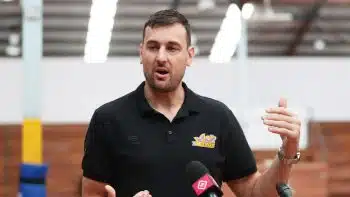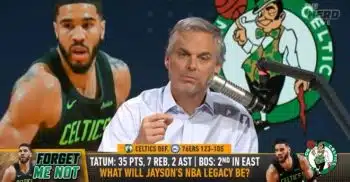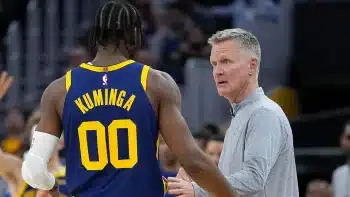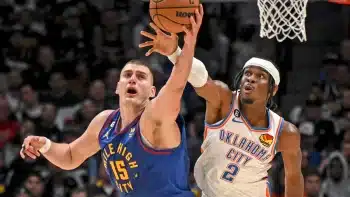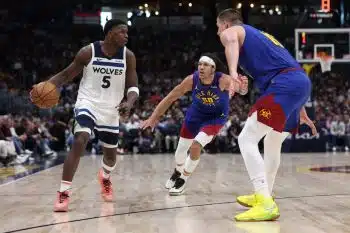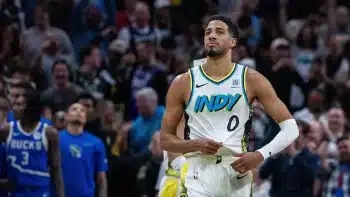NBA
NBA Thursday: How Earl Watson Became a Head Coach
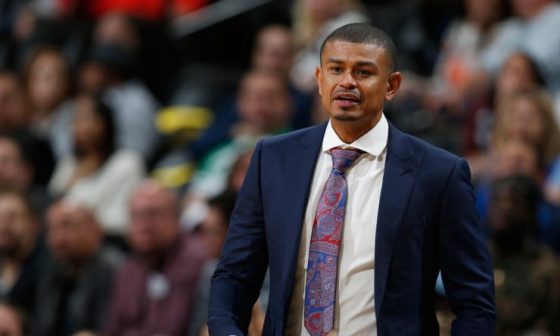
How appreciative is Earl Watson of all of his former head coaches? If you ask him, he might keep you all night long going through his list of coaches, calling his experiences “basketball heaven.” It began with John Wooden at UCLA and in one way or another includes the likes of Jerry West, Hubie Brown, George Karl and Frank Vogel among others.
The Phoenix Suns head coach played 13 years in the NBA with stops in Seattle, Memphis, Denver, Oklahoma City, Indiana, Utah and Portland. During his time in the league, he’s played for some of the most accomplished head coaches to have walked the sidelines. As he begins his first full season as head coach with the Suns, it’ll be those coaches that he draws inspiration from.
Perhaps his biggest mentor was Brown from his time with the Grizzlies. Watson played under Brown from 2002 to 2005 and admitted that he didn’t know much about Brown once he was hired as the Grizzlies’ head coach. In fact, Watson recalled that he just knew him as the analyst from TNT.
“He walks into a meeting when he’s introduced, and he tells us we’re all losers,” Watson said of his first meeting with Brown. “He’s going to teach us how to win, and [he dropped] a lot of F-bombs in the middle of all that. So, this moment I thought he’s the meanest guy I’ve ever met in my life. Coach Brown is my biggest mentor.
“I talked to him last night for like an hour. I love him and his family. What he’s done for me as a man has changed my life. It’s made me a better father, it’s made me a better person [and] it made me just take responsibility of my own acts, which led to a better player and gave me an identity as a person.”
Had it not been for the Seattle SuperSonics dragging their feet on offering Watson a new contract, he might not have met his biggest mentor. Watson became a free agent following his rookie season with the SuperSonics and was waiting on a new contract offer. When the team delayed their offer to Watson, he jumped at the next opportunity.
“I remember going into [my agent’s] office and Jerry West had walked in,” Watson recalled. “It was the free agency period and I hadn’t received an offer yet from Seattle. Jerry West talks about how he’s the new GM of Memphis. He goes, ‘Do you want to come?’ I said, ‘Absolutely.’ I can’t even tell you what Seattle offered; I didn’t care. ‘Cause to me, the money didn’t matter. What mattered to me most was I wanted to get the knowledge of a champion.”
As players progress through their career, it becomes evident that some would make for better coaches than others. It appeared as though Watson fit that mold the more he played in the league. He became known as a great teammate in the locker room during his various stops and possessed a very high basketball IQ.
Toward the latter half of his career, it seemed likely that he had his post-playing career mapped out. Some players opt to enter the broadcasting field while others stay in the game in one way or another. It wasn’t until he had his exit interview with the Pacers in 2010 that he started to realize he could become a coach.
“Larry Bird, Jim O’Brien, Dr. Jack Ramsey and David Morway sat me down in my exit meeting and asked me did I want to join the staff,” Watson said. “I was so confused. I was like, ‘The staff of what?’ He was like, ‘To coach, the front office.’ So I was like, ‘No, I’m only 29.’ I wanted to continue to play. So I left there, and when Larry Bird tells you, you can be a coach, you just believe it as a kid. You just believe whatever he tells [you]. If he told me I was gonna be a pilot, I’d probably be working at Southwest Airlines right now flying planes.”
Following his final season in the league with the Blazers, Watson knew it was time to move on from playing. He began receiving calls from various teams with offers to join their coaching staffs. He received a call from former San Antonio Spurs assistant general manager Scott Layden that kicked off his coaching career.
“Scott calls me and I go, ‘Scottie, what’s up?’” Watson remembered. “He goes, ‘We have a spot for you, but it’s in the D-League, do you want to humble yourself?’ I said, ‘When’s the interview?’ So, that’s how I ended up in San Antonio. [General Manager] R.C. Buford and Pop, I tell them all the time, they’re like my coaches, my first coaching opportunity, they mentored me.”
Watson would spend just one season with the Austin Spurs before joining the Suns’ organization. He was an attractive option for the Suns at the time because they were trying to recruit free agent LaMarcus Aldridge to sign with the Suns. Aldridge, of course, signed with the Spurs, but it was a decision that Aldridge later said was close between the two teams.
Following a disastrous start to the 2015-16 season, the Suns let go of head coach Jeff Hornacek and named Watson the interim head coach. While the Suns finished just 9-24 under Watson to finish out the season, it became clear that the players began to buy into his system. He managed to keep his players engaged even during the rough times and the team rewarded him this summer by naming him the permanent head coach.
“I operated as if I had to teach them the right way to play no matter who was there next year – me or someone else,” Watson said. “I owed that to them. All the coaches I’ve played for, they’ve given me an amazing opportunity to learn and to retain knowledge to further my career. I feel like the ultimate sin of any coach is not tell the truth, and not teach, and not hold players accountable. So for me, I was just taking it day by day, staying in the moment. Whatever happened I knew I would leave it to my destiny so there was no pressure, no issues.”
Watson learned from all of his previous head coaches to keep things simple. Things at the NBA level can be complicated and can confuse players so Watson wants to keep things as simple as possible. Young head coaches want to come into the league and try to teach everything to players. Watson learned from the likes of Jerry Sloan, Wooden, West and Brown to preach the fundamentals and keep it light.
He learned over the years to also keep the practices light. He said a lot of young coaches feel that practices need to be long. He remembers practices under Brown in Memphis would last less than an hour long. Scrimmages never occurred, either. By keeping practices short and eliminating scrimmages, players are more likely to take it upon themselves to stay in the gym and get extra work in.
As Watson runs down his list of head coaches that he’s worked with to reporters in Orlando last night, he begins to wrap up what has become an 11-minute pre-game media availability. He revealed that Gregg Popovich called him prior to the season to offer him some words of encouragement as he began his first full season as head coach.
“[He] told me, ‘Keep it short, be efficient, don’t practice too long [and] don’t wear the guys out,’” Watson said. “I get all this information, I’m just very blessed to have all these people come into my life, and that’s when I knew I had to be a coach. … It’s a long story.”
If Watson feels a longer-than-normal media availability doesn’t tell the whole story of his journey to becoming a head coach, perhaps he can explain it on the team’s five-hour plane ride back to Phoenix. Even then, that still may not be enough time.
